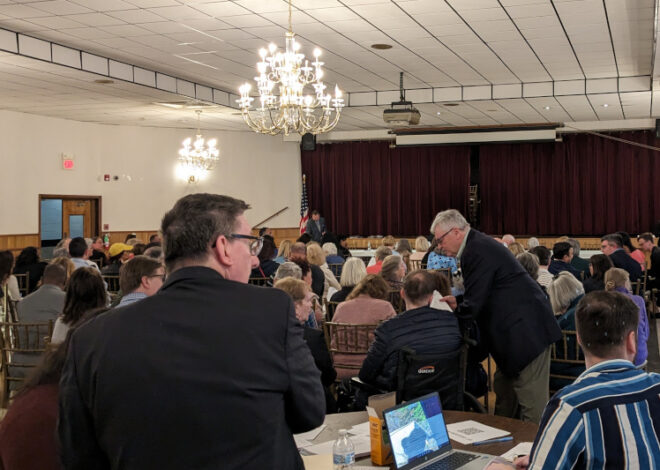2023 Legislation would cap rent increases to stem gouging, homelessness
By John McNamara
HARTFORD – A statewide “Cap The Rent” coalition kicked off a campaign to enact rent stabilization legislation in Connecticut this year at an online meeting of tenants, fair housing advocates and legislators on January 12.
More than 225 participants heard calls for grassroots organizing and legislative advocacy to adopt Senate Bill 138 (SB 138) introduced by State Senator Gary Winfield (D-10 ) of New Haven in the Connecticut General Assembly (GA). The GA convened last week for the 2023 session that will end in June.

The coalition, with the backing of the CT Democratic Socialists of America (CTDSA), tenant unions, Service Employees International Union locals (SEIU) including the Congress of CT Community Colleges (4Cs) and District 1199 Health Care Workers, seeks a three percent cap in rent increases on non-owner occupied housing and an end to no-cause evictions. Locally, the New Britain Racial Justice Coalition (NBRJC) and the American Association of University Professors (AAUP) have joined the coalition.
Rent stabilization as proposed by the coalition would cap annual rent increases at 3% “in line with pre-pandemic increases,” according to Sarah White, a staff attorney with the Connecticut Fair Housing Center and member of CTDSA. The policy initiative calls for a local process for landlords to request higher increases on a case-by-case basis “due to documented increases in expenses” and strong enforcement codes to protect tenants. Proponents are also calling for expanding “good-cause eviction protections” against “no-cause” evictions. Small landlords in owner-occupied housing of one to four families would be exempt.
Coalition members said progress was made last year when tenants won the right to legal representation involving eviction cases raising their hopes that tenant rights legislation can be enacted this year.
“Cap The Rent” measures spring from a need for “immediate relief” from excessive rent increases and displacement of families in cities facing arbitrary evictions, according to organizers. They cite the adoption of rent stabilization laws in California, Oregon and local option laws in more than 200 municipalities to make housing costs “predictable” and “reasonable.” The rent limits are urgently needed, proponents say, in a rental housing market where evictions and homelessness are on the rise in many communities. Exacerbating an “eviction crisis” cited in a report by the Fair Housing Center is a growing shortage of affordable housing in the state. The pre-pandemic report data shows that half of all eviction cases in Connecticut are filed in New Britain and the cities of Hartford, Bridgeport, Waterbury and New Haven and that “eviction cases are disproportionately filed against females, and even more disproportionately against Black and Hispanic/Latina females.”
Housing policy, zoning restrictions and bills related to the rights and responsibilities of landlords and tenants loom as major hot button issues in the General Assembly. Heavy opposition to SB 138 can be expected from the Connecticut Coalition of Property Owners and other landlord groups.
CT House Majority Leader Jason Rojas of East Hartford, in a January 2nd Hartford Courant Op-Ed, stated that housing “needs to be at the forefront of our collective agenda” in urging policy change at the state level in the 2023 legislative session. “Connecticut’s residents understand the consequences of a housing crisis,” Rojas wrote. “They see high property tax bills, they see rising rents, they see housing insecurity and homelessness increasing. They see racial isolation and want their children to have the benefit of an integrated education and growing up in a diverse community.”
The “Cap The Rent” legislation introduced by State Senator Winfield goes further calling for a 2.5% cap in a bill to be considered first by the Legislature’s Housing Committee. Four other legislators are early co-sponsors including State Reps. Aundre Bumgardner (D-41), Groton; Robyn Porter (D-94), New Haven; David Michel (D-146), Stamford, and; Travis Simms (D-140), Norwalk.




